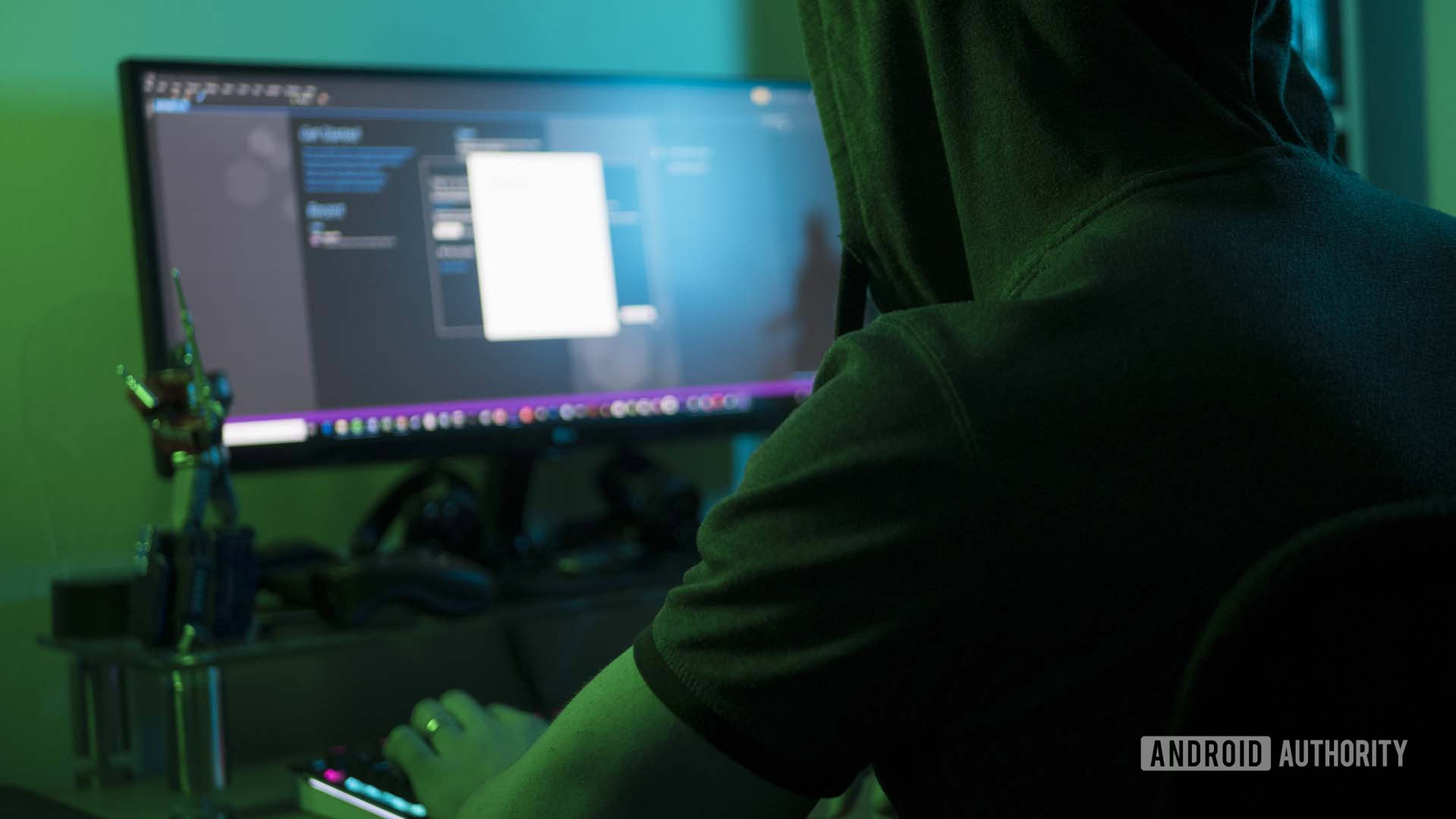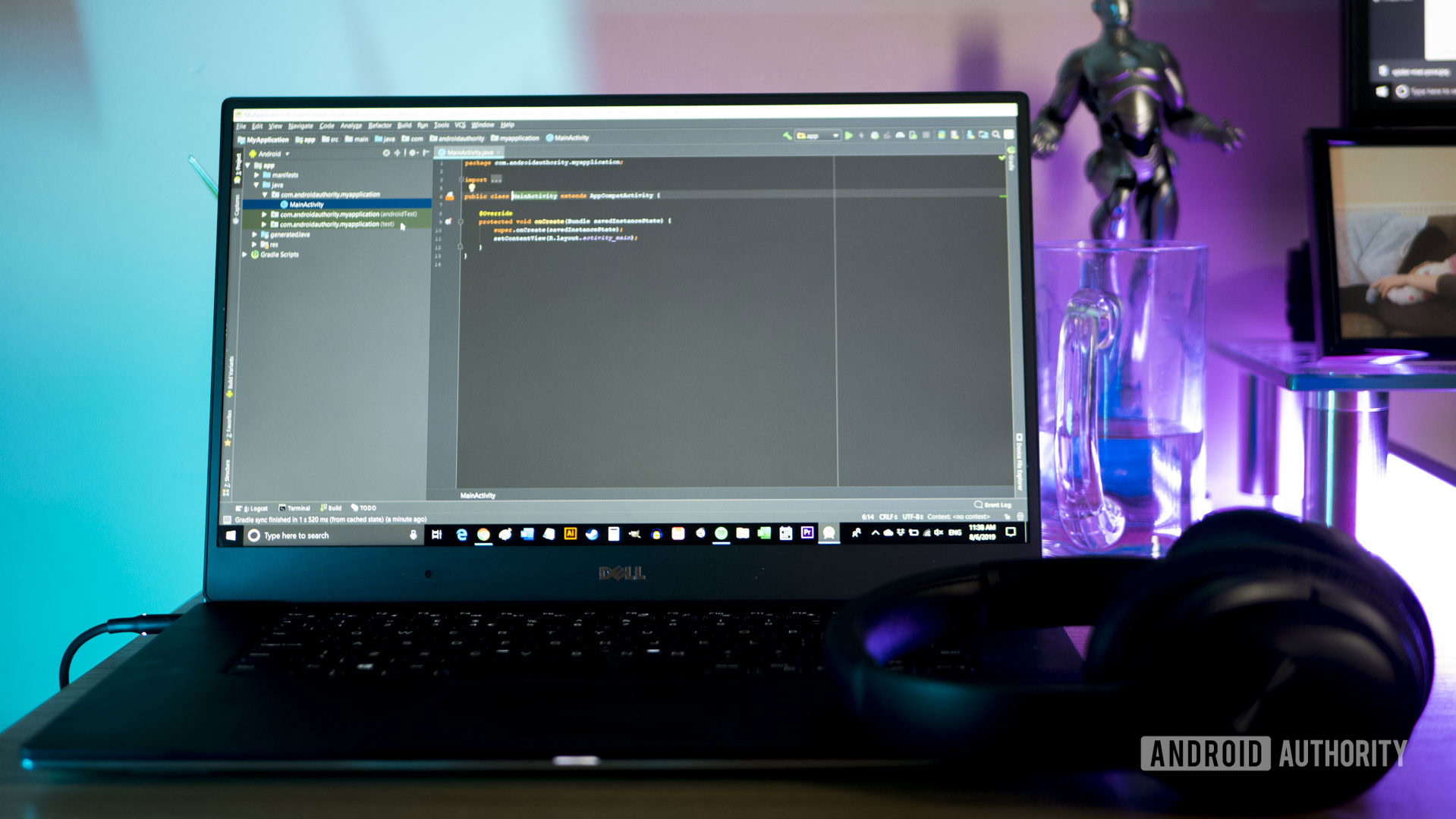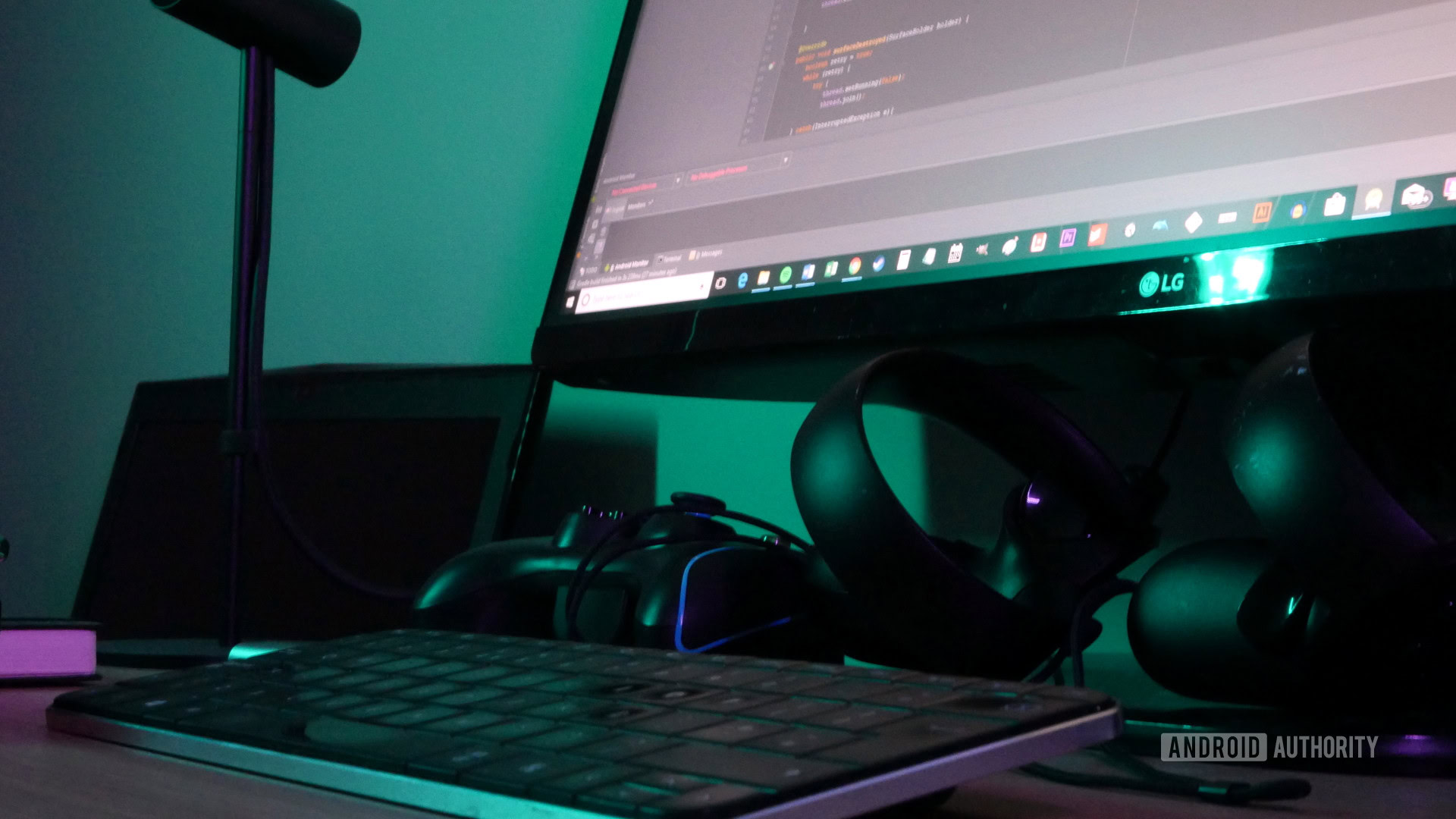Affiliate links on Android Authority may earn us a commission. Learn more.
Home office setup: How to separate your work space so you stay productive
Published onMay 15, 2021
Building the perfect home office setup is not only a matter of choosing the best furniture and décor, but also supporting the perfect state of mind. It’s about separating your downtime from your work time, and creating a room that will induce a sense of productivity and efficiency.
If you get this right, then stepping in and seeing your home office setup should immediately put you in a productive headspace. Once you leave, you should then go back to feeling calm and relaxed.
How do you achieve this? Read on!
Why a separate home office setup is so important
Without getting too deep into neuroscience, it’s important to recognize that you environment plays a key role in shaping your state of mind.
A great example of this is context-dependent memory. This shows that learning something in one environment makes it easier to recall that same information when we return to that same location. So if you wanted to study for an exam, the best place would be the examination room itself!
State-dependent learning goes one step further, showing that our state of mind and mood can also impact memory retrieval.
This applies to our home office, as we now know that building an association between a place and a set of skills/memories/activities will actually make us better at entering into the right state of mind. If you work in the living room, where you also watch Netflix and play with the kids, you won’t create that strong association and it will be harder to get into a productive state of mind.
What to do if you don’t have space for a home office setup
If you don’t have space for a separate room, there are options that can work nearly as well. One strategy is to cordon off an area of your living room or another room in your home. This might mean facing into one corner of the main lounge for instance. Try to create some separation by using changes in décor, or by physically sectioning that area off (using a long couch works well).
Another option is to actively set up and then take down your work area. You can do this by using a folding desk, and/or by stowing a laptop in a draw. This helps to create separation again, and the physical act of constructing and deconstructing your workspace sends a strong signal to your brain.
Rules for your office
With that in mind, you should try to set some basic ground rules for the way you treat your home office setup. The most important of these is that the office should be used purely for work. When you enter the space, you will immediately switch into a productivity mindset.

If you intend on taking a ten-minute break, then you should ideally remove yourself from the home office in order to do that.
The reverse is also true: don’t work while you’re on the couch in the evening. Creating separation between downtime and work is extremely important, as you will otherwise find that you can’t switch off properly in the evenings, and thus don’t feel recharged and fresh when you return to work the next day. That’s another simple rule you can make: no work out of the office!
Do not disturb
Another important tip is to create rules to prevent distractions and disturbances while working in your home office setup. If you are constantly distracted by your kids playing downstairs, or constantly visited by them, then you won’t be able to get into a productive “flow state.” Each time you start to fall into a rhythm with your work, you’ll be interrupted and need to start again.
(A flow state is a state of mind that enables you to focus entirely on one thing, and that is characterized by reduced activity in the prefrontal cortex.)
Some things that can help your home office setup:
- Clearly communicate to your family/housemates how important it is that you not be disturbed.
- Create a system that you can use to show you are “unavailable.” This might mean hanging something on the door handle for example, or simply shutting the door. If you are just responding to emails, leave the door ajar to say that it’s okay for you to be disturbed (though still not ideal).
- Use noise cancelling headphones. Create a productivity playlist that you can play loudly and on repeat!
- Where possible, keep the office far from the noisiest rooms in your home.
What’s also a good idea is to turn off notifications on your phone and computer. While you may need to check Slack and Gmail when you start your work day, constant pings will only pull you away from what you are doing. Create set times during your workday to check emails and notifications, such that the ball remains firmly in your court. Tim Ferriss has more ideas about how to achieve this in his book The Four Hour Workweek.
See also: Best noise cancelling headphones
Finally, remove distractions in your home office setup that will attempt to pull your attention away from work. This is not the right place to keep your Nintendo Switch for example, or a television!
Designing your office setup
What will also have an impact is just how effectively you design your home office setup. The decor should be effective at putting you in a productive headspace, such that you can focus on work and shut out distractions.
Lighting
Lighting can be a great tool to create a certain ambience in your home office setup and thereby create a powerful association. One of the best options is to use some kind of colored lighting. Not only can colored lighting have direct effects on your mood, but this also helps to create a very definite “cue” that will tell your brain that it is back in the office.
See also: The 5 best smart light bulbs – Philips Hue, LIFX, and more
Rich environments
While the stereotypical office is a grey cubicle, this is actually one of the worst design choices you can make for your home office. That’s because “rich environments” (i.e. stimulating environments) are actually more effective at stimulating flow states. In short, these help to keep us switched on and alert, rather than disinterested and unengaged. Read The Rise of Superman by Steven Kotler for more on how and why this works.
Desk toys can do a good job of creating the right kind of stimulation, as can artwork.

Inspiration
One of the best forms of decoration to create this rich environment is something that will inspire you to work. Again, this helps to put you in the right “zone” for the work you’re about to do. This was recommended by Cal Newport in the book Deep Work as part of his hypothetical “eudaimonia machine” (a space dedicated to creating a productive mindset).

More ways to create separation
Creating a separate space for your home office setup is just one way to separate your work from your downtime. Just as important though, is to avoid bringing work out of the office with you.
One of the best ways to ensure that doesn’t happen is by having a separate work phone. This prevents you from getting notifications while you’re trying to unwind in the evening and means that you can take the day on fresh tomorrow. It also removes the temptation to quickly check email.
More important though, is to ensure that you properly manage your time in order to create more separation between your workday and your time off. This requires discipline and practice, as it is all too easy to fall into the trap of working late “just this once.” The danger is that with your office so close to your couch, you’ll end up with no down-time at all (which isn’t good for your health, your work, or your relationships!).
The work you end up doing late at night is almost never as important as you think it is.
Moreover, the work you end up doing late at night is almost never as important as you think it is. Nor is this likely to be high-quality work. If you absolutely have to get more work done, starting early the next day is preferable.
Also read: Best work from home apps, gadgets, and tools
Creating this strict separation won’t come easy at first, but it’s worth sticking with it. And by using the right home office setup, you will be giving yourself the very best chance of succeeding!